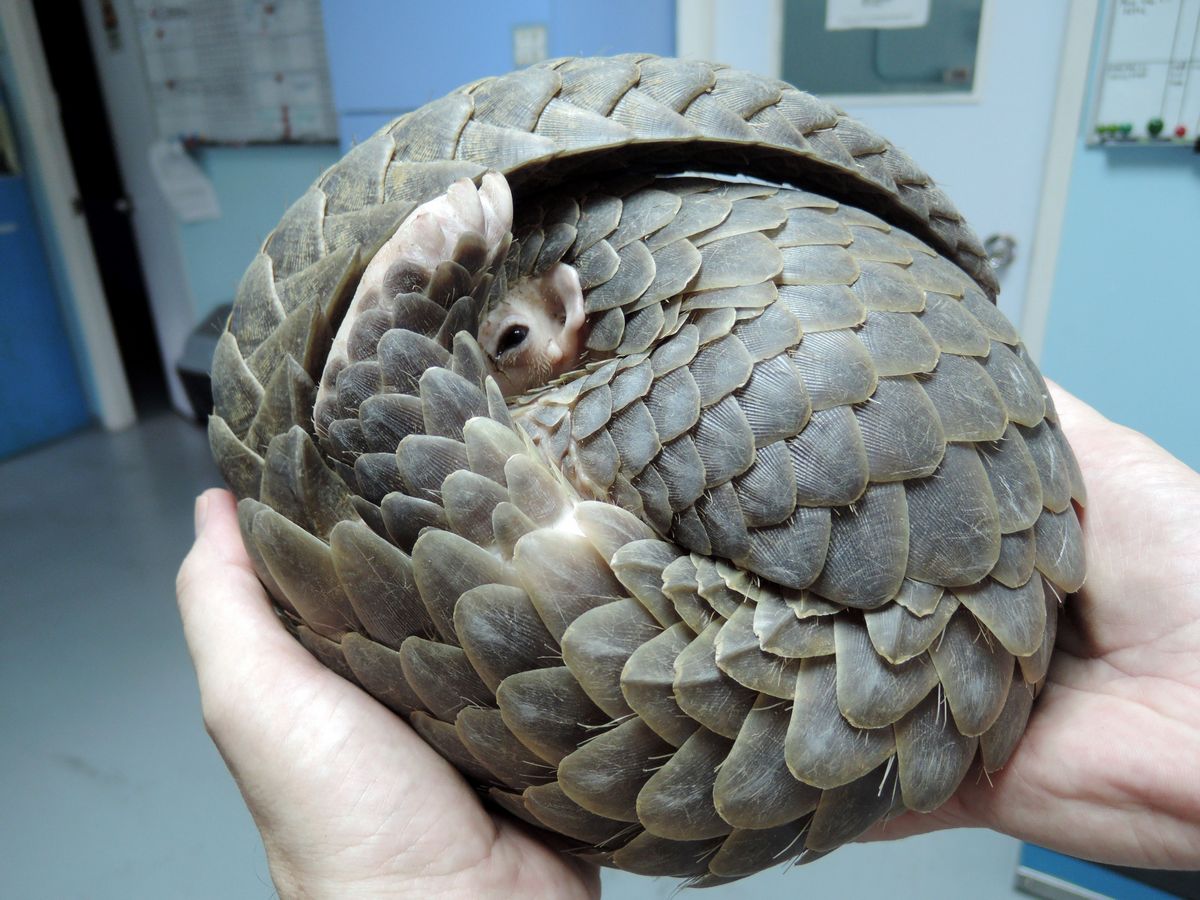Hong Kong shops defy ban on trade in pangolin scales

HONG KONG - On a winding Hong Kong street where shops keep a dizzying array of dried produce, one highly valued ingredient is still being sold despite being subject to an international ban: deep-fried scales of endangered pangolins.
The reclusive pangolin, also known as the scaly anteater, has become the most trafficked mammal on earth due to soaring demand in China and Vietnam.
While its scales are prized for their supposed medicinal properties in treating everything from acne to liver disease and cancer, its flesh is considered a delicacy.
Trade in the animals was banned in 2016 to protect remaining populations, but Agence France-Presse found traditional Chinese medicine shops in Hong Kong still selling bags of pangolin scales, stashed away out of sight.
"If you need it for health reasons, I will look to see if I have some," one elderly shopkeeper said, before stepping on a ladder to reach a package hidden behind stacks of boxes.
He brought down a sack of deep-fried scales and named his price: HK$500 (S$84) for a mere 40 grams.
Then he flipped through a ledger of traditional Chinese medicine recipes, showing a type of tea that calls for ground pangolin scales mixed with herbs and roots.

Hong Kong has an unenviable reputation for trading in several controversial, banned or endangered commodities including ivory, shark fin, rhino horn and tiger parts and critics routinely accuse the territory of failing to do enough to stamp out such practices.
The shopkeeper even refuted the need for conservation: "There are still many pangolins in Asia. They're only saying that they are endangered."
An estimated one million of the animals have been plucked from Asian and African forests over the past decade, shunting them onto the list of species at the highest risk of extinction.
Another shop on the same street had an even bigger stash of deep-fried scales, also concealed behind stacks of boxes and on sale for US$82 (S$108) per 40 grams.
"Pangolin can rid the body of toxins. This is really good quality and worth the price," the saleswoman said.
Campaigners say there is no evidence to support any of the medicinal claims attributed to pangolin.
A third shopkeeper did not have scales on display but said they were available on "special order".
HIGH-SPEED BOAT CHASE

About the size of a small dog, pangolins are almost defenceless in the wild, curling up into a ball when they are scared, allowing poachers to easily scoop them up.
Commercial breeding is unfeasible because pangolins are picky eaters, prone to disease and easily stressed. Their average survival rate in captivity is less than five years compared to 20 years in the wild.
Hong Kong is a top destination for illegal pangolin shipments because there is demand from local residents, and the semi-autonomous city also functions as a first stop for onward smuggling to southern mainland China.
In September 2016, all 182 member nations of the Convention on International Trade in Endangered Species (Cites) agreed to move pangolins into the highest protection category banning all trade.
Previously, Cites allowed for trade in pangolins but under strict conditions.
"If Hong Kong was following Cites guidelines and implementing the policy decisions made in 2016, then this would no longer be happening in 2018," said Ms Astrid Andersson, founder of Hong Kong for Pangolins.
Updated sentencing guidelines taking effect in May will increase the maximum jail term for trafficking and possession of endangered species from two to 10 years but the law is rarely enforced and the city has come under fire for some relatively lax penalties for Cites violations in the past.
"A slap-on-the-wrist fine from Hong Kong authorities is not uncommon for smugglers, who generally avoid trafficking their illegal wildlife products straight into mainland China because of much heavier sentences there," said Mr Alex Hofford, wildlife campaigner for WildAid.
Hong Kong's Customs and Excise Department told AFP they are committed to combating smuggling activities and conducts checks on "passengers, cargoes, postal packets and conveyances at various control points and sea boundaries".

The amount of pangolin scales recovered in Hong Kong increased last year after the Cites protection upgrade - a total of 7.7 tonnes from 21 seizures compared to 1.4 tonnes in 2016 from 24 seizures.
The countries of origin in the shipments were all African, according to government data.
In December, customs officers pursued a gang of smugglers for two hours on speedboats in Hong Kong waters after two vessels were detected trying to enter mainland China.
The gang members jumped into the sea and swam ashore to escape, but officers recovered pangolin scales and arrested one Hong Kong resident in connection with the case.
CHINA CRACKDOWN
In Guangzhou, the capital of China's southern Guangdong province where pangolin shipments have arrived from Hong Kong in the past, shopkeepers were much more on edge.
At the Qingping Market complex, some traditional medicine merchants walked away when AFP asked about pangolin.
"I've never heard of such a thing!" one saleswoman said, after a neighbouring stall owner referred to her shop as one selling scales.
Another explained: "It is illegal and very hard to get now. No one will sell it to you unless you're already a trusted client."
Mr Hofford said such difficulties in buying scales showed how mainland China is leading Hong Kong on the protection of endangered species.
"The Chinese enforcement authorities have been doing a great job lately smashing smuggling and trafficking rings and raising awareness on protecting these amazing animals," he said.